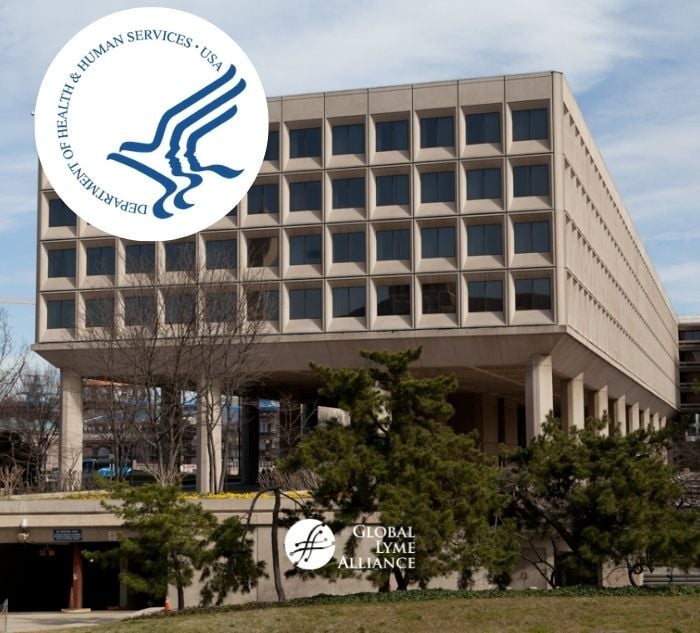
Global Lyme Alliance's Varied Research Endeavors Uncover Insights into Chronic Lyme Disease, Bartonellosis, Ozone Therapy, and the Complex Interplay of Patient Genetics and Immune Responses in Lingering Lyme Symptoms
Global Lyme Alliance (GLA), the leading 501 (c)(3) dedicated to conquering Lyme and other tick-borne diseases through innovative research, awareness, and empowering the patient voice is proud to have awarded $19 million for new research grants and ongoing projects to researchers at top-tier universities and medical institutions in the U.S. and abroad to date. This latest funding round, the first since the onset of the COVID-19 pandemic, symbolizes a significant milestone, reflecting GLA's unwavering commitment to advancing vital research.
In 2024, Global Lyme Alliance's research remains crucial in the ongoing battle against Lyme and other vector-borne diseases. With the increasing incidence of Lyme disease cases globally, GLA’s commitment to advancing research is vital in understanding the complex dynamics of these diseases and developing innovative solutions.
GLA’s Chief Scientific Officer, Timothy Sellati, Ph.D., declares “By staying at the forefront of Lyme disease and tick-borne disease research in 2024, Global Lyme Alliance plays a pivotal role in shaping a more comprehensive and effective approach to diagnosis and treatment, ultimately fostering a healthier and more resilient global community.”
In announcing the new grants, GLA CEO Laura MacNeill noted that funding requests from international researchers doubled since our last funding cycle.
“We were pleased to see such a strong interest in Lyme disease among international as well as continued and growing interest by US based researchers,” she said. “It underscores the fact that GLA is recognized globally by the research community as a source of seed funding for innovative and outside-the-box scientific ideas. Federal funding for tick-borne disease research is woefully inadequate when one considers the devastating impact these diseases have on patients’ lives,” said MacNeill.
GLA’s latest grant recipients and projects include:
1. Jenny Hyde, Ph.D. Texas A&M University and Melissa Caimano, Ph.D., University of Connecticut, are examining whether persisting bacteria are a cause of chronic Lyme disease. Using an innovative mouse model of Lyme disease and bacteria that are either fluorescent or bioluminescent (like fireflies) this study will determine the fate of Lyme bacteria and which antibiotics are effective at killing bacteria if they persist.
2. Monica Embers, Ph.D., Tulane University and Annette Moter, MD, Ph.D., Charité-Berlin University Medicine are uncovering why treatments for chronic Bartonellosis often fail. An important outcome of this study will be identification of drug combinations that can kill Bartonella even when they are inside cells or in biofilms. Although evidence for Bartonellosis as a tick-borne disease in the US is lacking, it is nonetheless an important potential co-infection affecting Lyme patients.
3. Tanja Petnicki-Ocwieja Ph.D., Tufts University is examining how ozone therapy might help Lyme patients. The results of this study might identify inflammatory biomarkers that if inhibited would reduce the severity and duration of Lyme disease symptoms.
4. Klemen Strle, Ph.D., Tufts University, is delving into whether patient genetics and immune responses lead to lingering Lyme symptoms. Findings from this research will lay the groundwork for more effective immune-based treatment strategies for patients with debilitating lingering symptoms of Lyme disease.
Ongoing funding of projects includes:
1. Ilhem Messaoudi, Ph.D., University of Kentucky, is continuing to uncover how Lyme bacteria and antibiotics damage the gut microbiome in non-human primates. Study results suggest that probiotics may be necessary to mitigate the negative effects of antibiotics and bacterial infection on gut microbiota while still combating Lyme disease.
2. Dritan Agalliu, Ph.D., Columbia University, is looking into whether targeting select inflammatory molecules can alleviate symptoms of PANDAS. Group A Streptococcal bacteria can cause a neuropsychiatric condition in children called Pediatric Autoimmune Neuropsychiatric Disorder Associated with Streptococcal Infections (PANDAS). Successful completion of this work could lead to human clinical treatment trials to alleviate OCD and other symptoms of PANDAS patients. Many infection-associated chronic illnesses have associated psychiatric complications. A critical question is whether this holds true for pediatric Lyme disease patients as well.
3. Lise Nigrovic, M.D., M.P.H., Boston Children’s Hospital, is studying strategies to improve the diagnosis and treatment of children with Lyme disease. She heads the Pediatric Lyme Network (Pedi Lyme Net) that enrolls children across 8 different emergency departments in 6 different states. Blood samples collected from these children are stored in the associated biobank and are an invaluable resource for researchers and companies to drive new diagnostic and treatment discoveries.
All of GLA’s projects are focused on helping patients and driving progress one grant at a time.
GLA’s rigorous process for evaluating grant applications, unique among Lyme disease nonprofits, is modeled on the peer-review guidelines of the National Institutes of Health. Our Scientific Advisory Board members, comprised of scientists in industry and academia who are all noted experts in medical research, immunology, and microbiology, evaluate applications in their respective fields. Each application is then reviewed according to strict criteria, followed by a series of discussions to ensure that only the most promising applications are funded. Towards the end of this year, ideas for new research projects will be solicited for the 2025 – 2026 grant review cycle.
***
ABOUT GLOBAL LYME ALLIANCE
Global Lyme Alliance is the leading 501(c)(3) dedicated to conquering Lyme and other tick-borne diseases through innovative research, awareness, and empowering the patient voice. GLA has gained national prominence for funding some of the most urgent and promising research in the world, while expanding education and awareness programs for the public and physicians. We support those around the globe needing information about tick-borne diseases. Learn more at GLA.org.








